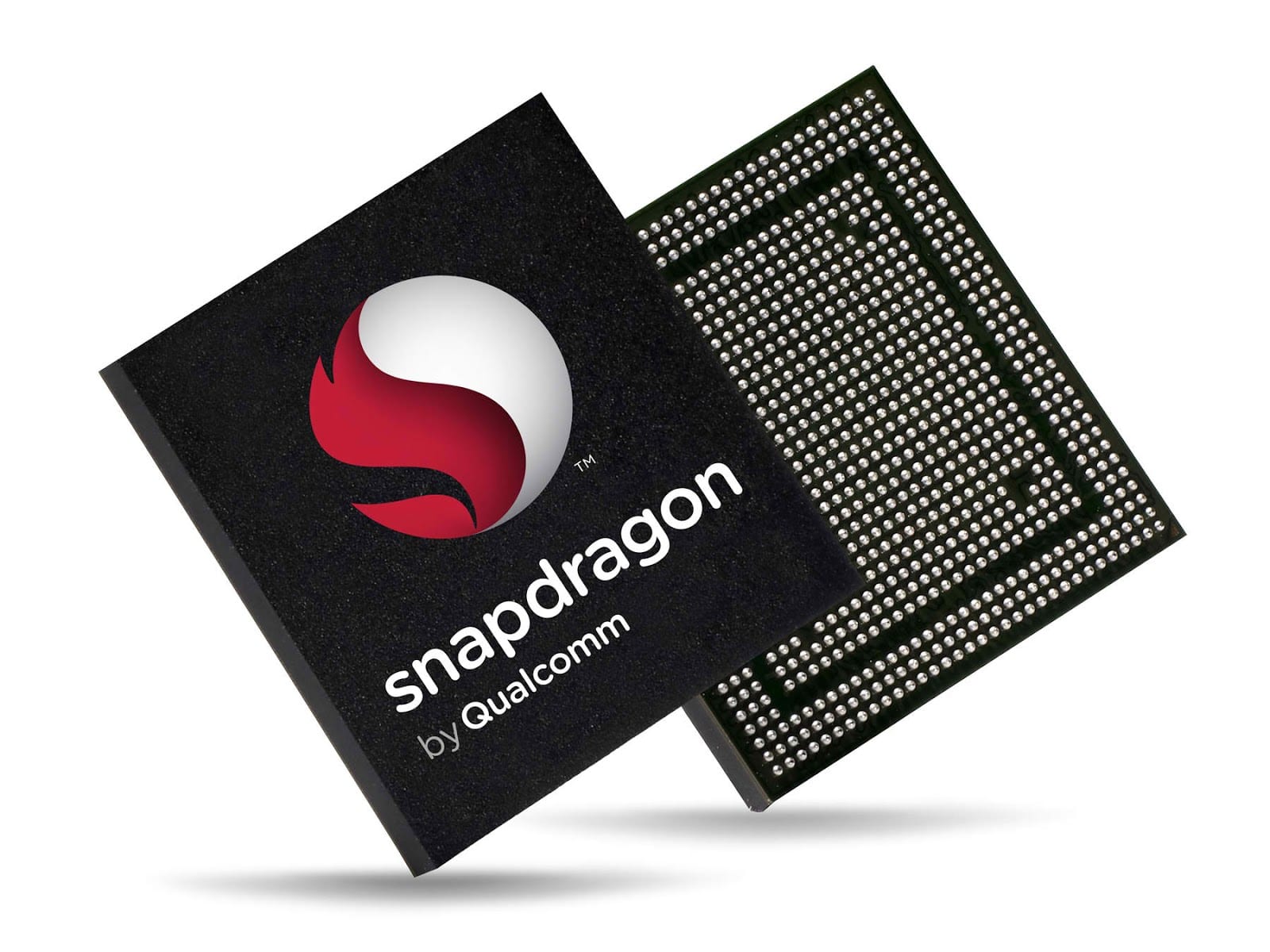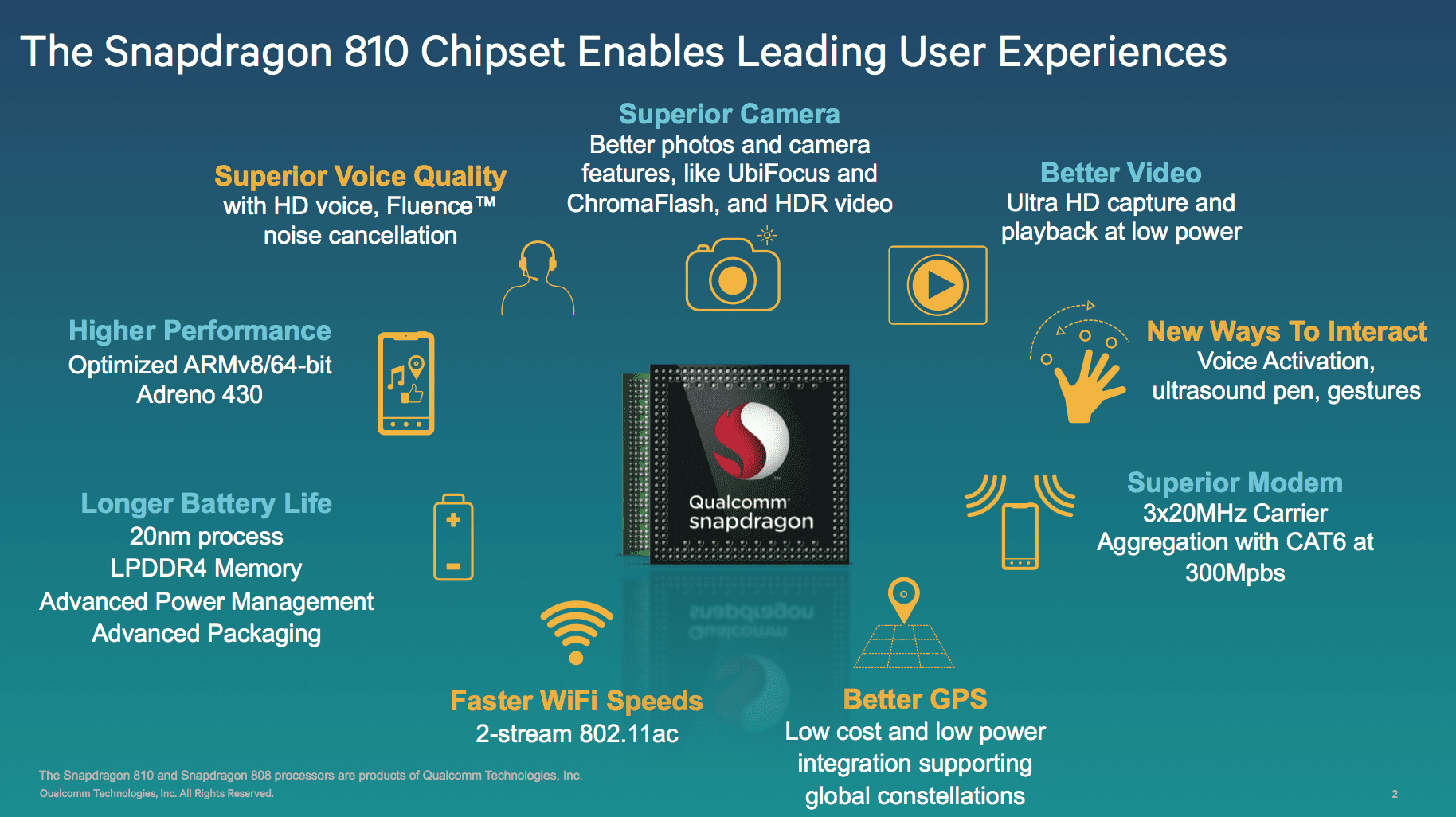
A few months ago Qualcomm showed us its new range of processors Snapdragon 810. We know it will be a beast with incredible power, but the guys at Qualcomm had a very well kept secret: the clock frequency at which the cores of this new SoC work.
Processor Qualcomm Snapdragon 810 It has eight cores, made up of four Cortex A57 cores and another four A53 cores that operate at different clock frequencies, in order to balance the power depending on the required process. And now we know what will be the power of the processor that will integrate most of the flagships that the companies will present to us throughout the next year 2015.
The Qualcomm Snapdragon 810 will be a very powerful processor

The quad core Cortex A57 of the SoC Qualcomm Snapdragon 810 will have a clock speed of 1.96 GHz, far from the 2,65 GHz reached by those that integrate the Snapdragon 805. On the other hand, the cFour Cortex A53 cores they will reach a clock speed of 1.56 GHz of power.
Obviously, and although we see that the Qualcomm Snapdragon 805 processor has four cores with a higher clock speed, the frequency offered by the Snapdragon 810 promises a much higher performance. Not to mention the 64 bit support, something that is not available in its predecessors and that will allow to take full advantage of the advantages that this type of architecture offers, in addition to being able to integrate more RAM memory.
On the other hand, we have a notable improvement in the Energy Efficiency , by using more powerful cores with more efficient cores. Adding to the fact that the Qualcomm Snapdragon 810 uses a 20nm lithographic process, while the Snapdragon 805 uses 28nm technology for its construction, we have a much better optimized new range of processors.
Does this mean that our smartphones will last longer on thanks to these new processors? Well, the truth is that I highly doubt that we will notice a noticeable improvement in performance. The main reason why our mobile devices have such a low autonomy is the screen they use, which consumes the most resources. Although now when we enjoy a game, the processor will not eat the battery in a short time.